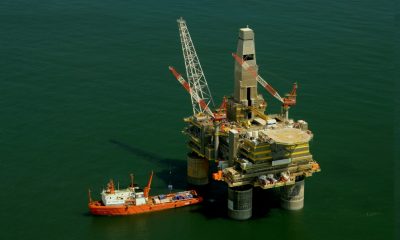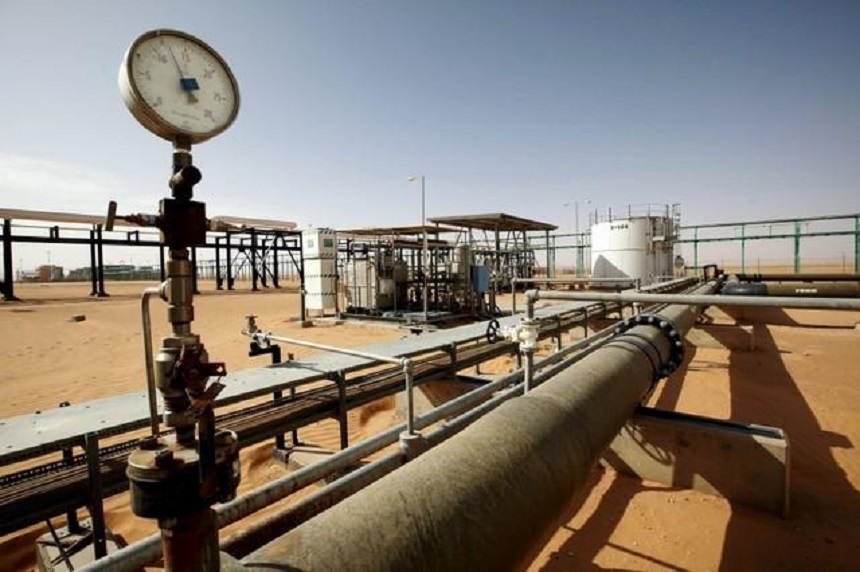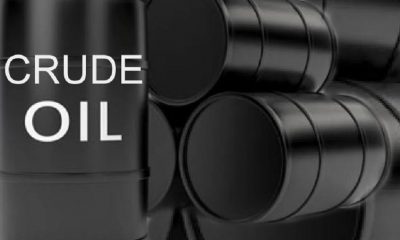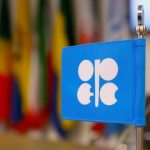Economy
Nigeria’s Oil Production Jumps 50,000b/d to 1.49mb/d in December 2023
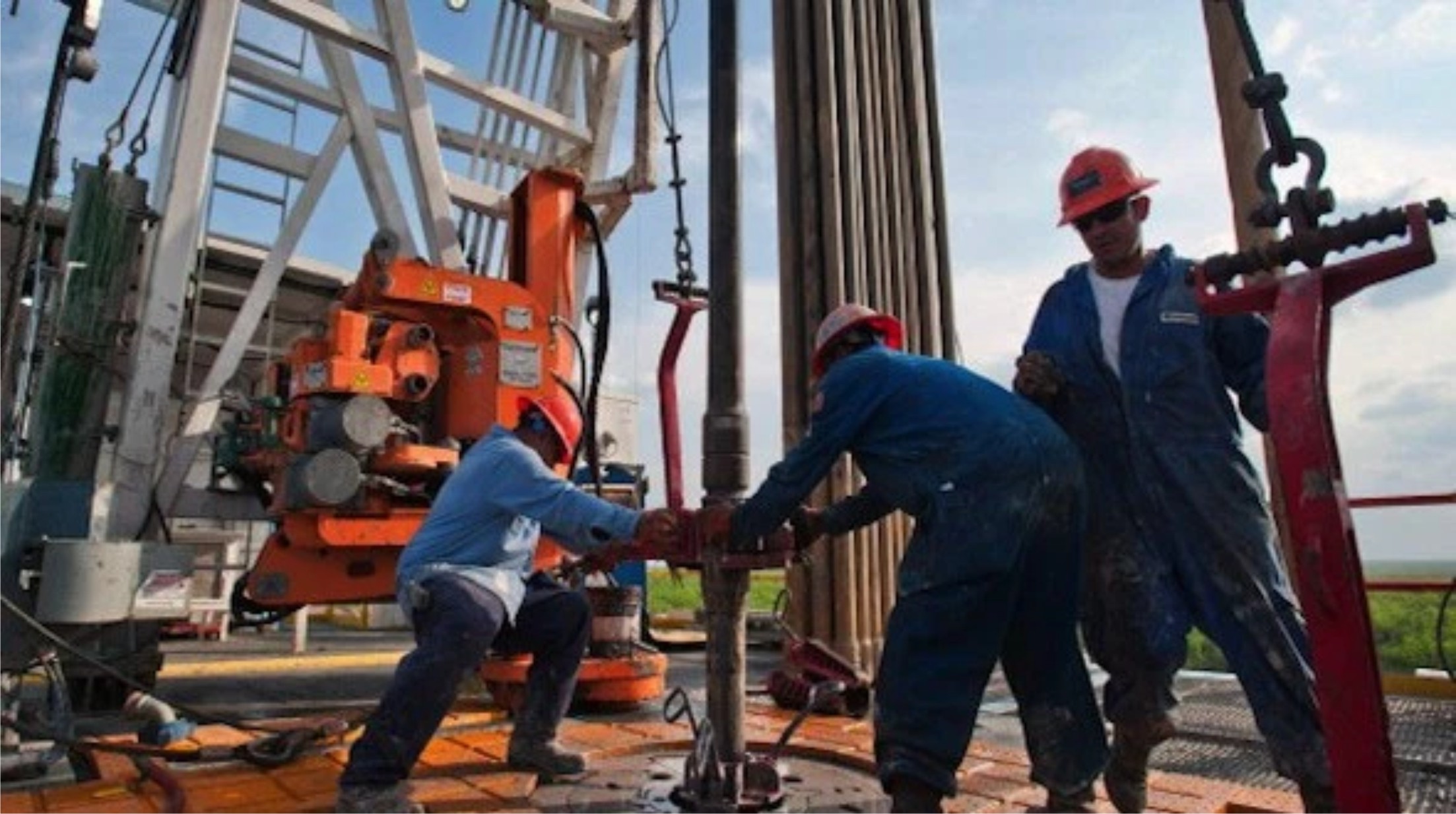
By Adedapo Adesanya
Nigeria bolstered its oil supplies by 50,000 barrels a day to 1.49 million per day in December 2023, a new Bloomberg survey has shown.
The country, which is Africa’s largest oil producer, was one of the major contributors as the Organisation of Petroleum Exporting Countries (OPEC) maintained consistent crude oil production in December 2023, averaging 28.05 million barrels per day.
OPEC adhered to production limitations, as observed in countries such as the United Arab Emirates (UAE) and Angola, which curtailed their output.
However, Nigeria offset these reductions, helping OPEC reach an average of 28.05 million barrels per day last month.
The report stated, “Supply declines from these two members were tempered by increases elsewhere. Nigeria bolstered supplies by 50,000 barrels a day to 1.49 million a day in December, in line with a revised quota that it successfully negotiated for this year.”
OPEC has provided Nigeria with a 2024 target of 1.5 million barrels per day in contrast to the 2024 Budget’s 1.78 million barrels per day.
The move follows a meeting in June where OPEC and its allies, OPEC+ agreed on a complex deal that revised production targets for several members.
OPEC had tasked three consultancies – IHS, Rystad Energy, and Wood Mackenzie – with verifying production figures for Nigeria, Angola, and Congo, and based on their recommendation, Nigeria has to produce at that level.
Nigeria’s oil output has been in decline for years but has picked up in recent months helped by more production offshore, which is less prone to security problems. According to the latest data, Nigeria averaged 1.45 million barrels per day in the third quarter of the year.
The country has unsuccessfully planned on boosting its output to 1.8 million barrels, which in addition to condensate (excluded from the OPEC numbers) will total 2 million barrels per day.
Angola announced its withdrawal from OPEC in December, citing its refusal to accept a reduced limit imposed by OPEC’s leaders. However, its output in December, consistent with the level it had rejected, reflected years of underinvestment.
OPEC+ countries like Saudi Arabia, Russia, the UAE, Iraq, Kuwait, Kazakhstan, and Algeria aim to gradually increase production, contingent on the performance of the oil market.
Economy
OPEC+ Agrees Modest Oil Output Boost as US War on Iran Disrupts Shipments
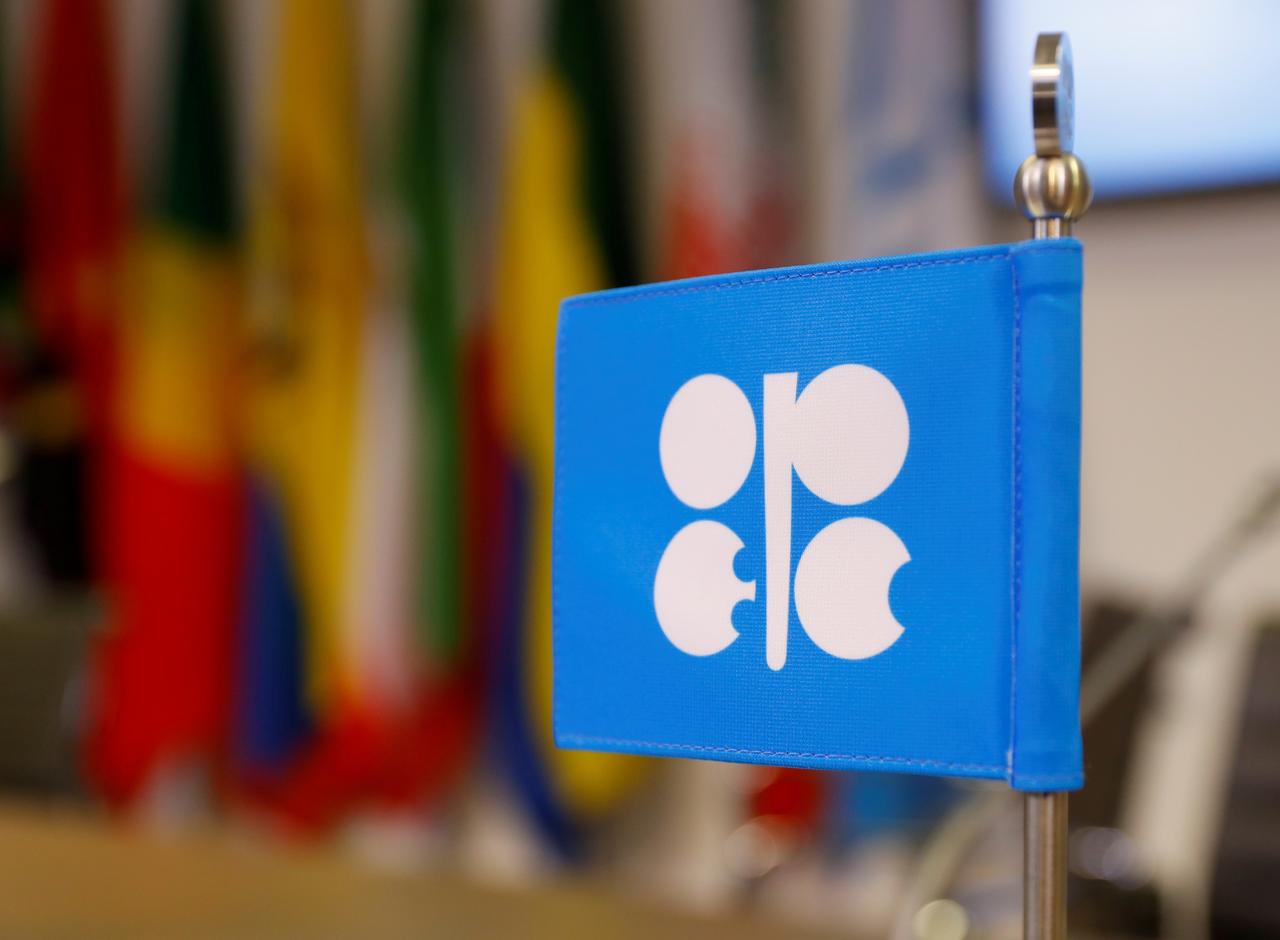
By Adedapo Adesanya
The Organisation of the Petroleum Exporting Countries and allies (OPEC+) has agreed to begin a modest increase in oil production of 206,000 barrels per day from April, just as the US-Israel war on Iran disrupted flows from key members of the group in the Middle East.
In a virtual meeting on Sunday, Saudi Arabia, Russia, Iraq, the United Arab Emirates, Kuwait, Kazakhstan, Algeria and Oman reviewed global supply and demand conditions before deciding to start unwinding part of their additional voluntary production cuts first announced in April 2023.
The countries agreed on a production adjustment of 206,000 barrels per day for April 2026, marking the first step in easing a 1.65 million barrels per day voluntary reduction introduced nearly three years ago.
In a statement issued after the talks, the group said low oil inventories and stable economic prospects justified a cautious return of supply to the market.
The 1.65 million barrels per day cut, announced in April 2023, was introduced alongside a separate 2.2 million barrels per day voluntary reduction unveiled in November 2023 as part of broader efforts by the OPEC+ alliance to stabilise prices amid economic uncertainty and fluctuating demand.
The eight producers stressed that the 1.65 million barrels per day could be restored “in part or in full” depending on evolving market conditions, and reiterated their readiness to pause or reverse the unwinding if necessary.
“The countries will continue to closely monitor and assess market conditions,” the statement said, adding that flexibility would remain central to the group’s strategy.
The move signals confidence among the core OPEC+ members that supply constraints have successfully supported prices while preventing excessive stockpiling. Analysts note that Brent crude prices have remained relatively firm in recent months, supported by disciplined output management and resilient Asian demand.
However, the producers underscored that the adjustment does not mark a full return to pre-cut production levels. They reaffirmed their commitment to the 2022 Declaration of Cooperation, the framework binding OPEC members and non-OPEC allies such as Russia, and said compliance would continue to be monitored by the Joint Ministerial Monitoring Committee (JMMC).
The group also confirmed that countries which have overproduced since January 2024 would fully compensate for excess output. Compensation plans are expected to be reviewed monthly.
OPEC+, which accounts for roughly 40 per cent of global crude supply, has repeatedly adjusted output since the Covid-19 pandemic in response to demand shocks, geopolitical tensions and inflationary pressures.
The eight countries will hold monthly meetings to assess market developments, conformity and compensation levels, with their next gathering scheduled for April 5, 2026.
Meanwhile, oil, gas and other shipments from the Middle East via the Strait of Hormuz have come to a halt since Saturday after shipowners received a warning from Iran saying the area was closed for navigation.
Economy
NASD Exchange Rises 1.22% on Sustained Bargain-Hunting

By Adedapo Adesanya
Strong appetite for unlisted stocks further raised the NASD Over-the-Counter (OTC) Securities Exchange by 1.22 per cent on Friday, February 27.
Data revealed that the NASD Unlisted Security Index (NSI) was up by 49.41 points to 4,083.87 points from 4,034.46 points, and lifted the market capitalisation by N19.56 billion to N2.433 trillion from N2.413 trillion.
The volume of securities bought and sold by investors increased by 243.0 per cent to 4.5 million units from 1.3 million units, and the number of deals grew by 15.8 per cent to 44 deals from 38 deals, while the value of securities went down by 19.7 per cent to N82.5 million from N102.8 million.
Central Securities Clearing System (CSCS) Plc ended the session as the most active stock by value on a year-to-date basis with 35.0 million units valued at N2.1 billion, followed by Okitipupa Plc with 6.3 million units worth N1.1 billion, and Geo-Fluids Plc with 122.8 million units transacted for N480.4 million.
Resourcery Plc ended the day as the most traded stock by volume on a year-to-date basis with 1.05 billion units sold for N408.7 million, followed by Geo-Fluids Plc with 122.8 million units valued at N480.4 million, and CSCS Plc with 35.0 million units traded for N2.1 billion.
There were six price gainers yesterday led by FrieslandCampina Wamco Nigeria Plc, which added N9.02 to close at N111.46 per unui compared with the previous day’s N102.44 per unit, Nipco Plc appreciated by N6.00 to N284.00 per share from N278.00 per share, CSCS Plc recouped N1.87 to sell at N70.12 per unit versus Thursday’s value of N68.25 per unit, Geo-Fluids Plc improved by 17 Kobo to close at N3.18 per share versus N3.01 per share, Industrial and General Insurance (IGI) Plc advanced by 5 Kobo to sell at N50 Kobo per unit versus the preceding day’s 45 Kobo per unit, and Acorn Petroleum Plc chalked up 2 Kobo to settle at N1.34 per share, in contrast to the previous day’s N1.32 per share.
Economy
FX Liquidity Crunch Sinks Naira to N1,363/$1 at NAFEX, N1,370/$1 at Black Market

By Adedapo Adesanya
The Naira performed poorly against the United States Dollar in the different segments of the foreign exchange (FX) market on February 27, closing the week without a gain.
In the black market, the domestic currency weakened against the Dollar yesterday by N5 to close at N1,370/$1 compared with Thursday’s closing price of N1,365/$1, and at the GT Bank forex desk, it lost N2 to sell N1,369/$1 versus the N1,367/$1 it was sold a day earlier.
Yesterday, the Nigerian Naira lost N3.75 or 0.26 per cent against the greenback at the Nigerian Autonomous Foreign Exchange Market (NAFEX) to trade at N1,363.39/$1 compared with the previous day’s N1,359.82/$1.
Also, the Naira depreciated against the Euro at the official market during the session by N2.33 to quote at N1,609.22/€1 versus N1,606.89/€1, and appreciated against the Pound Sterling by N6.74 to settle at N1,836.49/£1 compared with the preceding session’s N1,843.23/£1.
The Naira’s latest depreciation occurred as FX demand continued to outpace available supply, intensifying pressure in the market.
In response to the negative momentum, the Central Bank of Nigeria (CBN) intervened by selling Dollars to banks and other authorised dealers in an effort to stabilise the local currency. The move came barely a week after the apex bank had purchased about $190 million from the foreign exchange market to temper the Naira’s rally.
Specifically, the CBN injected $200 million into the official market between Tuesday and Wednesday through an intervention call. However, the liquidity support proved insufficient to reverse the currency’s downward trend.
Meanwhile, the cryptocurrency market declined on Friday, with Solana (SOL) down by 10.4 per cent to $78.60, as Dogecoin (DOGE) decreased by 9.5 per cent to $0.0982.
Further, Cardano (ADA) slumped 8.9 per cent to $0.2647, Ethereum (ETH) slipped by 8.6 per cent to $1,859.10, Ripple (XRP) shrank by 8.2 per cent to $1.30, Litecoin (LTC) lost 1.4 per cent to close at $52.39, Bitcoin (BTC) slid 5.9 per cent to $63,686.39, and Binance Coin (BNB) went down by 4.9 per cent to $596.64, while the US Dollar Tether (USDT) and the US Dollar Coin (USDC) traded flat at $1.00 apiece.
-

 Feature/OPED6 years ago
Feature/OPED6 years agoDavos was Different this year
-
Travel/Tourism10 years ago
Lagos Seals Western Lodge Hotel In Ikorodu
-

 Showbiz3 years ago
Showbiz3 years agoEstranged Lover Releases Videos of Empress Njamah Bathing
-

 Banking8 years ago
Banking8 years agoSort Codes of GTBank Branches in Nigeria
-

 Economy3 years ago
Economy3 years agoSubsidy Removal: CNG at N130 Per Litre Cheaper Than Petrol—IPMAN
-

 Banking3 years ago
Banking3 years agoSort Codes of UBA Branches in Nigeria
-

 Banking3 years ago
Banking3 years agoFirst Bank Announces Planned Downtime
-

 Sports3 years ago
Sports3 years agoHighest Paid Nigerian Footballer – How Much Do Nigerian Footballers Earn


